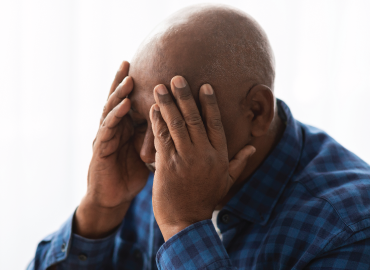Managing Brain Fog from Long COVID
Brain fog is not a medical or scientific term, it is used by individuals to describe how they feel when their thinking is sluggish, fuzzy and not sharp.
Symptoms of brain fog include:
- poor focus
- feeling confused
- thinking more slowly than usual
- fuzzy thoughts
- forgetfulness
- lost words
- mental fatigue
Brain fog can feel similar to the effects of sleep loss and stress. Although the symptoms may seem similar to dementia symptoms, they are not the same thing. Dementia is caused by damage to or loss of nerve cells and their connections in the brain.
Brain fog does not mean damage to the brain and people with brain fog usually recover.
While recovering from COVID-19, some people experience brain fog symptoms for a short time while others may experience brain fog for several months or longer. It is important to speak to your doctor if you are worried about your symptoms.
Many factors can affect the way we think and our mental (cognitive) function. Having a tough time with any of these things can make your symptoms seem worse or last longer. You may see more benefits when you put a few strategies in place because many factors are connected.
What can I do to help manage brain fog from Long COVID?
There are some general things you can do to help manage brain fog:
- Use energy conservation and pacing strategies to save mental energy. (See Managing Fatigue from Long COVID for more information).
- Take frequent breaks. Work for shorter periods.
- Avoid drugs and alcohol.
- Sleep well. Find helpful routines for your sleep. Brain fog can become worse with fatigue, meaning the more tired you are, the more you may feel like you have difficulty thinking.
- Try some exercise or physical activity. (See Long COVID Movement and Exercise for more information).
- Eat well. Enjoy a healthy balanced diet.
- Pay attention to your mood. Take down time if you need it.
- Accept that you may have good days and bad days and remind yourself that you may have some mental slips sometimes.
There are also some specific things you can do to help manage brain fog:
- For your tasks:
- Break down difficult tasks into smaller parts and tackle them one step at a time. It might even help to make a list of steps and cross them off as you complete them.
- Set realistic goals for yourself.
- Do your most challenging mental tasks when you feel the most alert and well rested.
- For your memory:
- Keep track. Use a planner or a diary to keep track of important appointments, tasks, or information.
- Use reminders. Setting alarms on your phone might be helpful.
- Keep important items in the same place (phone, keys, wallet, etc.).
- If you cannot recall a word try describing instead, or say something similar.
- For your environment:
- Keep your living area tidy to limit distractions around you.
- Limit distractions when you are trying to focus, for example:
- Turn off the television or radio, or move to a quieter space.
- Use earplugs or noise cancelling headphones.
- Use softer lighting.
Asking for help is not always easy but can help you manage. Let those around know what you are experiencing so that they may be able to give you support.
Other Helpful Resources
Watch this Video:
